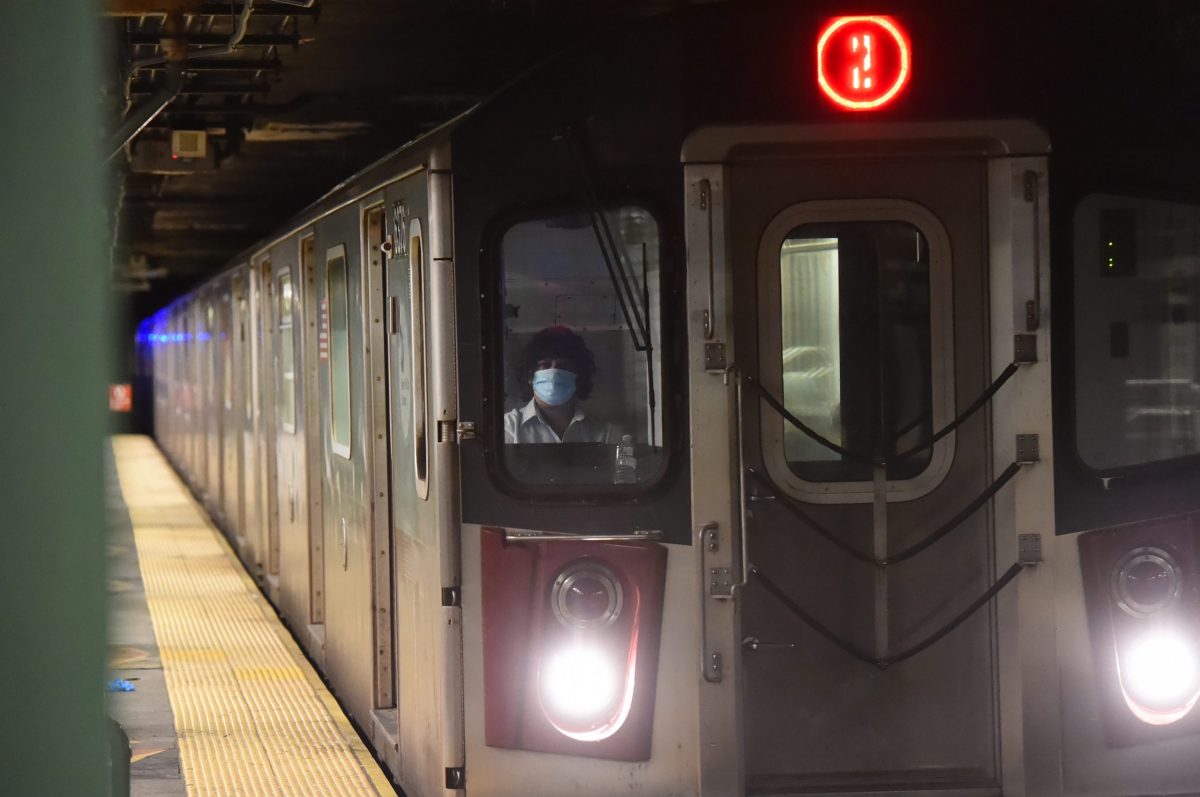A letter to Governor Andrew Cuomo to shut down the city’s subways and buses as a measure against the spread of COVID-19 was not met with agreement by the parties involved on Sunday morning.
City Councilman Robert Holden’s office penned the letter that Holden and three other City Council members signed — Eric Ulrich and Peter Koo of Queens, and Mark Gjonaj of the Bronx.
The lawmakers said that the striking number of transit workers deaths, as well as the prolific spread of the disease being something unique to New York City, should be considered. They also called on the city to suspend all parking regulations.
Holden’s office did not respond to amNewYork Metro when asked for a copy of the letter, but posted the letter to Facebook after our deadline for this story.
The MTA told amNewYork Metro on Sunday that the request was a non-starter.
“What these council members don’t realize is that shutting down mass transit during this unprecedented crisis would be dangerous and could lead to even more deaths,” an MTA statement said. “Even with subway ridership down more than 90 percent, we are making it possible for doctors, nurses, first responders, grocery and pharmacy workers, and other essential personnel to get to work and save lives. The MTA has led the nation in its efforts to protect its employees and customers, disinfecting its stations and rolling stock daily and even breaking away from federal guidance and providing hundreds of thousands of masks to our heroic workforce before the CDC recommended it.”
While one of the prominent arguments for Holden’s letter was in defense of transit workers who have suffered unlike other frontline workers with 68 deaths as of Saturday, the union representing the men and women of the MTA did not agree.
Transport Workers Union President John Samuelsen, during a WOR-AM radio appearance on April 14, rejected the notion of shutting down the transit system, recognizing that their members are concerned but understand what’s at stake.
Going a step further, Samuelsen said the crisis would be much worse if the transit system had completely shut down.
“But nonetheless, we see ourselves as this vital cog in the societal fight back against COVID-19. We are as as you said, we are the system that gets the blue-collar responders to the frontlines with this battle – nurses, home aides, food service workers – if it weren’t for this system, there would be no battle against COVID-19 in New York and across the country,” Samuelsen said. “[New York] would not have been able to get first responders to the front lines, we wouldn’t have food in some cases, we wouldn’t have food workers at work, we wouldn’t have nurses at hospitals, we wouldn’t have home aides taking care of our elderly, in houses, but not for the public transit system.”
Although those statement come days before Holden’s letter, a TWU spokesman said on Sunday these sentiments on shutting down service still applies.
The letter cited a paper from MIT that said the spread of coronavirus moved in correlation with the transit system. Critics dismissed that paper as being non-peer reviewed nor published. Holden’s letter additionally claimed homeless New Yorkers on the subways were major factor in spread.
“Taking this all into account, we believe that the New York City transit system is a primary contributor to the spread of COVID-19,” the letter said. “During that time, the city and state should partner with for-hire vehicle services to provide rides to essential workers. All tolls and parking for restrictions, except for no standing, should also be lifted during the shutdown to allow essential workers to drive and park their personal vehicles to work.”
The ride-share aspect of the letter is not something that has been deployed on a large scale in cities like New York, but Jersey City Mayor Steven Fulop has taken time to fill transit gaps by partnering with Via.
Subsidized by 100,000 rides per month under Jersey City’s contract with Via and providing 700 rides per day in early March when the mayor spoke with amNewYork Metro about the program, Fulop said the program was designed to offset the gaps left by NJ Transit services which he said have been left underfunded.
“Unfortunately, the subways played a major role in spreading the virus,” a statement from Ulrich said. “It’s imperative that the city and state explore every possible method to protect both commuters and MTA employees.”
At its height, the subways were moving about 5 million per day, and ridership has dropped by 90%. Even with this decline, could ride-share services pick up the slack of the largest transit system in North America being suspended?


































